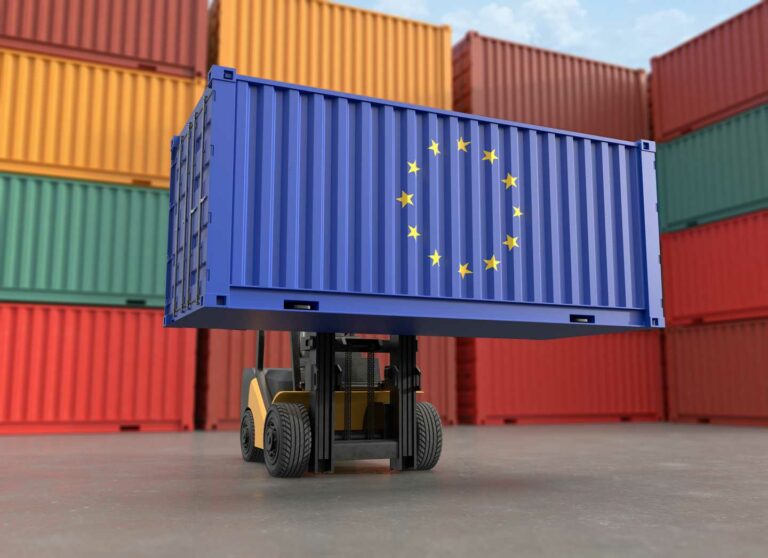The adoption of the VAT e-commerce package has brought about major changes to the European tax and customs landscape, particularly with regard to distance sales.
As of 1 July 2021, the European Union adopted a new legislation on value-added tax (VAT) applicable to distance sales (DS) and more broadly to e-commerce.
This new reform, known as the “VAT e-commerce package”, overturns the rules that have been in place until now, particularly for platforms selling goods and services online.
Thus, this new regulation entails tax and customs changes for the intra-European sale of goods, but also for goods coming from outside the European Union.
What changes with the reform?
The aim of this overhaul is to adapt the VAT system to the growth of e-commerce. This transposition leads to a harmonisation of the VAT rules between the different market players. It also helps to curb VAT fraud in the e-commerce sector and to ensure fair competition.
On the other hand, the introduction of the VAT e-commerce package is causing major upheavals both in terms of taxation and customs. The main changes brought about by the reform are
- The redefinition of the notion of distance sales. A distinction must now be made between two types of distance sales:
- Intra-EU Distance Sales. It refers to B-to-C sales of goods where the transport is from one EU Member State to another.
- The distance sales of goods imported from a third country. It refers to B-to-C sales where the transport is from a non-EU country to an EU Member State.
- The introduction of a single threshold of €10,000 only for businesses established in a single EU Member State. Businesses will have to apply the VAT of the country of destination if their turnover exceeds €10,000 or if they opt for taxation in the Member State of arrival. Otherwise, the VAT of the country of departure must be applied.
- The abolition of the tax exemption for parcels up to a value of €20.
- The establishment of a one-stop shop (OSS) for the sale of goods and services. This allows businesses to register in a single Member State for all intra-EU transactions.
- The VAT liability of marketplaces (Amazon, Cdiscount, Fnac, etc.). These platforms, which facilitate online sales, will now have to collect VAT under the following conditions:
- For European Union-based businesses involved in the distance sale of goods with a value of €150 or less.
- For businesses based outside the European Union selling to consumers in the European Union. The levy will only apply to sales of goods with a value of more than €150.
What are the consequences for sellers in the European Union?
For European Union-based businesses selling through marketplaces, this reform will reduce and simplify their administrative formalities.
On the other hand, the VAT e-commerce package offers a better level playing field between sellers residing in the EU and sellers established in a third country operating via an EU marketplace. The latter enjoyed an unfair competitive advantage, as they were not registered for VAT and were not required to pay it.
What are the consequences for platforms?

E-commerce platforms are strongly impacted by this new regulation. They are now considered as suppliers, and no longer as interfaces between supply and demand.
As such, they are liable for VAT on behalf of the sellers listed on their site. As a result, the marketplace must collect, declare and remit VAT on behalf of the sellers. This measure is accompanied by the obligation to register for one of the special schemes (OSS – IOSS) provided for in the VAT e-commerce package.
What are the consequences for consumers?
On the side of the final consumer, the impact of the reform is minimal. From now on, they will have to check whether the amount of their purchases is inclusive of tax (TTC) or exclusive of tax (HT).
In the first case, nothing will change for the consumer. VAT will be included in the purchase price of the goods or services.
In the second case, VAT will not apply at the time of purchase. The payment of VAT will be claimed from the consumer, by the carrier, at the time of delivery of the package.
Which EU countries have transposed this reform?
| Member State of the European Union | Transposition of the e-commerce VAT package |
|---|---|
| Austria | Approval and transposition |
| Belgium | Approval and transposition |
| Bulgaria | Approval and transposition |
| Croatia | No |
| Cyprus | Approval and transposition |
| Czech Republic | Approval and transposition |
| Denmark | No |
| Estonia | Approval and transposition |
| Finland | Approval and transposition |
| France | Approval and transposition |
| Germany | Approval and transposition |
| Greece | Approval and transposition |
| Hungary | Approval and transposition |
| Ireland | Approval and transposition |
| Italy | Approval and transposition |
| Latvia | Approval and transposition |
| Lithuania | No |
| Luxembourg | Approval and transposition |
| Malta | Approval and transposition |
| Netherlands | Approval and transposition |
| Poland | Approval and transposition |
| Portugal | Approval and transposition |
| Romania | Approval and transposition |
| Slovakia | Approval and transposition |
| Slovenia | Approval and transposition |
| Spain | Approval and transposition |
| Sweden | Approval and transposition |
ASD Group supports you in the application of these new measures. We offer various services to provide you with customised solutions that comply with the new obligations of the VAT e-commerce package.
- Our VAT experts offer you a training course dedicated to the 2021 e-commerce VAT reform. They will work out what will change for you in the reform and reveal its secrets, the pitfalls to avoid and the tips to follow.
- Our “e-commerce VAT audit” service analyses your business in depth in order to establish your declaration obligations according to your flows and offers you adapted solutions to optimise your VAT processing.
- Are you an e-merchant or dropshipper? Get a personal consultation with a member of our e-commerce team to help you develop your online sales and receive a free e-book. Register now!
For more details on the new measures introduced by the e-commerce VAT reform in the European Union, see our dedicated article.
Please contact us for more information or to request a quote.




